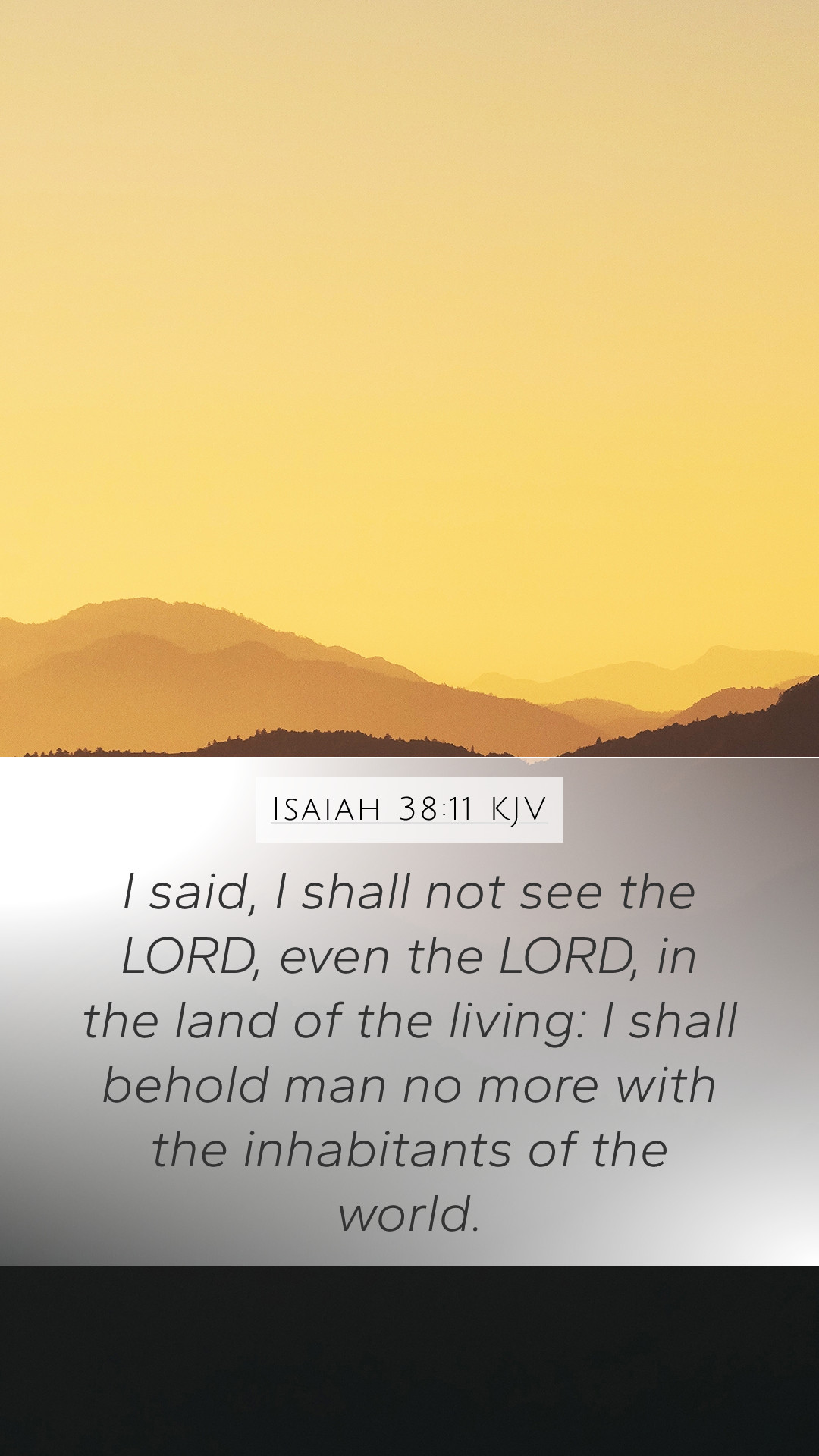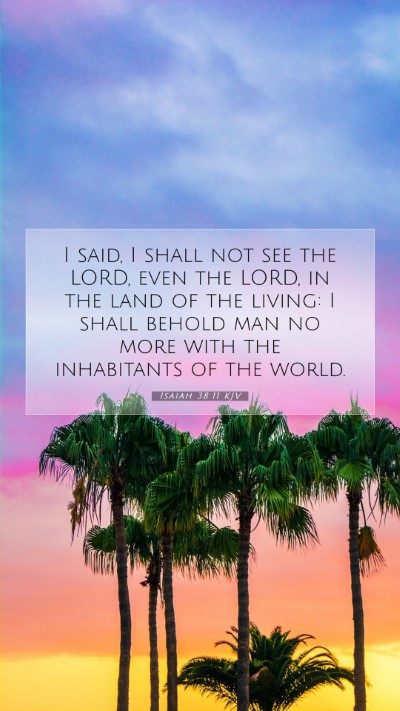Understanding Isaiah 38:11
Isaiah 38:11 states:
"I said, I shall not see the Lord, even the Lord, in the land of the living: I shall behold man no more with the inhabitants of the world."
Bible Verse Meanings and Interpretations
This verse reflects a moment of deep despair felt by King Hezekiah, who was gravely ill and believed that he was nearing death. His lament highlights several key themes in the context of Biblical history and theology.
Key Themes
- Mortality and Hope: Hezekiah's proclamation reveals a profound understanding of human mortality. He expresses a sense of hopelessness regarding his future and physical separation from the living.
- Divine Presence: The phrase "I shall not see the Lord" indicates Hezekiah's fear of separation not just from life but from the presence of God, showcasing how deeply he values his relationship with God.
- The Inhabitants of the World: His sorrow into "beholding man no more" reflects the isolation that he perceives in death, emphasizing the relational aspect of life that he cherishes.
Bible Verse Commentary from Notable Scholars
Matthew Henry's Commentary
Henry elaborates on the depth of Hezekiah's despair, emphasizing that in this moment, the king felt forsaken and hopeless. He also notes that Hezekiah's recognition of his impending death stirred a deep spiritual reflection about his relationship with God and his people.
Albert Barnes' Notes on the Bible
Barnes focuses on the implications of Hezekiah's words regarding the afterlife. He suggests that the king's feelings are common to mankind, expressing the universal fear of death and the unknown. Additionally, he highlights that Hezekiah's heartache was rooted in his desire for continued service in the world.
Adam Clarke's Commentary
Clarke provides insight into the Hebrew context of the verse, stressing the emotional sincerity of Hezekiah's experience. He notes the significance of the land of the living as a metaphor for both physical life and spiritual communion with God, emphasizing the king's realization of what death could cost him.
Biblical Exegesis and Historical Context
To fully grasp the meaning of Isaiah 38:11, one must consider the historical background—a period during which Hezekiah faced threats from Assyria and dealt with personal illness that affected the kingdom's stability. The emotional weight in this passage points to a deeper spiritual crisis, where life, death, and faith intertwine.
Historical Context
- The Assyrian Crisis: Hezekiah's reign was marked by threats to his leadership and the survival of Judah, which adds a layer of stress influencing his dire expressions.
- Personal Struggle: His illness serves as both a personal crisis and a reflection on his legacy in governance and obedience to God.
Application of Isaiah 38:11 in Daily Life
This passage encourages profound contemplation for believers today, especially in grappling with mortality and faith. When faced with life's trials, individuals can reflect on their relationship with God and seek solace in His presence.
Practical Insights for Believers
- Embrace Life Relationships: Like Hezekiah, acknowledge and cherish connections with those around us, fostering community and support.
- Faith in Hit Hard Times: Use moments of despair to reevaluate one's faith and connection with God, seeking deeper understanding and comfort.
- Seek Spiritual Reassurance: When feeling isolated or downcast, turn to scripture and prayer for encouragement and direction.
Related Bible Cross References
- Psalm 88:5 - Reflecting on separation in death.
- Isaiah 38:18-19 - Hezekiah's further reflections post-illness.
- Job 7:7 - Job's lament on life and its fleeting nature.
- Ecclesiastes 3:2 - A time to be born and a time to die.
Conclusion
Isaiah 38:11 is a profound verse that encapsulates the human experience of confronting mortality and the deep longings for a relationship with God. Insights gained from public domain commentaries can enrich Bible study groups and personal reflections, providing greater understanding of Scripture as well as comfort and guidance in moments of distress.


